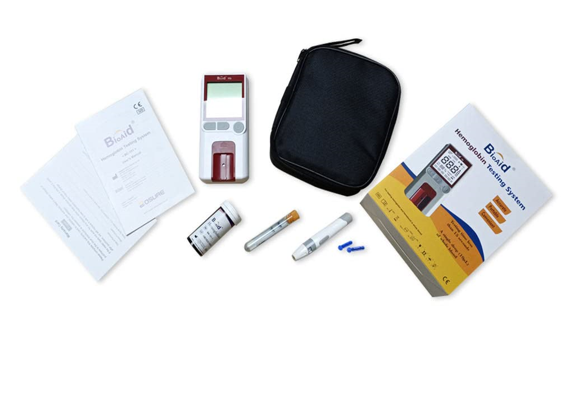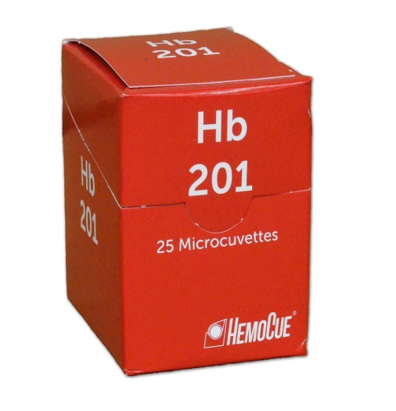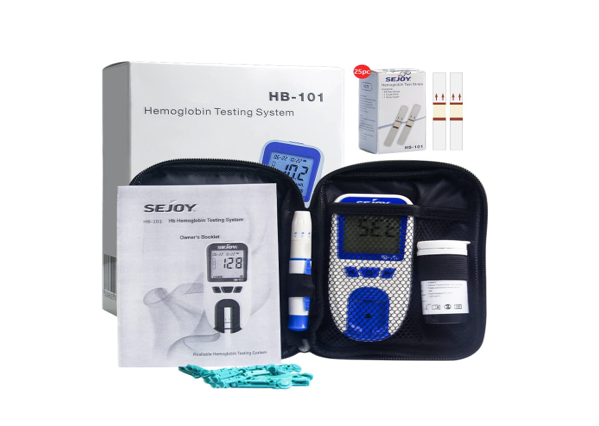When it comes to measuring hemoglobin levels, having best hemoglobin kits that are accurate and reliable is essential for healthcare professionals and individuals monitoring their health. The market offers a wide range of hemoglobin kits, but finding the best one can be a daunting task.
This article will explore and highlight some of the top-rated hemoglobin kits, considering factors such as accuracy, ease of use, and affordability, to help you make an informed decision and ensure precise hemoglobin measurements for diagnostic and health monitoring purposes.
What Is Hemoglobin?
Hemoglobin is a protein found in red blood cells (erythrocytes) that plays a crucial role in transporting oxygen from the lungs to the body’s tissues and carrying carbon dioxide, a waste product, back to the lungs for exhalation.
It is responsible for the characteristic red color of blood and consists of four protein chains, known as globin, each bound to a heme group containing iron. The iron within the heme group allows hemoglobin to bind and carry oxygen molecules.
Hemoglobin levels are an important indicator of overall health and are commonly measured in medical settings to diagnose and monitor conditions such as anemia, polycythemia, and various other blood disorders.
What To Consider When Buying Best Hemoglobin Kits
When purchasing the best hemoglobin kit, there are several important factors to consider:
Accuracy
The kit should provide precise and reliable measurements of hemoglobin levels. Look for kits that have been tested and validated for accuracy.
Ease of Use
Choose a kit that is user-friendly and easy to operate. It should include clear instructions and require minimal steps to obtain results.
Sample Size
Consider the required sample size for the kit. Some kits may require smaller blood samples, which can be beneficial, especially for individuals who have difficulty providing larger samples.
Testing Method
Different kits employ various testing methods, such as spectrophotometry or colorimetry. Understand the advantages and limitations of each method and select the one that suits your needs best.
Speed of Results
Consider the time required to obtain results. Some kits provide rapid results within minutes, which can be advantageous in time-sensitive situations.
Cost
Evaluate the cost of the kit, considering both the initial purchase price and the cost of consumables, such as test strips. Ensure that the kit provides good value for money without compromising accuracy.
Brand Reputation
Look for reputable brands that have a record of accomplishment of producing reliable medical devices. Consider reading reviews and seeking recommendations from healthcare professionals or trusted sources.
Calibration and Maintenance
Check if the kit requires calibration or regular maintenance. Kits that are easy to calibrate and maintain can save time and effort in the long run.
Compatibility
Ensure that the kit is compatible with the specific settings or devices you intend to use it with, such as portable analyzers or electronic health records systems.
By considering these factors, individuals and healthcare professionals can make an informed decision and choose the best hemoglobin kit that meets their specific requirements
Best Hemoglobin Kits
-
Healthcaretuye Hemoglobin Test Kit

First on the list is the Healthcaretuye hemoglobin meter that uses venous or capillary whole blood to check for hemoglobin levels within 15 seconds. It is a rapid test kit that utilize micro specimen to get fast readings. This kit should be used under the guidance of a health professional and instruction manual should be followed to the later. It comes with one meter, twenty-five strips, and twenty-five lancets
Features
- ≤ 15 seconds test time
- Measurement Range of 4.5g/dL-25.6 g/dL(45g/L-256 g/L)
- Use 10μL Whole blood
- Units of Measurement is g/dL, g/L, or mmol/L.
- Keeps 800 records
- Use 3 x AAA battery
- Measures 135 mm × 66mm × 19 mm
- Weighs 90g
- Range of sample bias is ≤±1g/dL or ≤±10%
- Use data cable to sync data with PC
- BHM 101 model
Pros
- Rapid Test result
- Requires Micro Specimen
- Low power consumption
- Allows data transfer
- Rechargeable
- Easy to set up and use.
Cons
- Batteries are not included in the package
- Instructions are a little complicated
-
Lysun Hemoglobin Meter kit with

Lysun BHM-102 Hemoglobin meter kit from Generic contains one meter, one code chip, twenty-five strips in a canister, one lancing device, twenty-five lancets and instructions manual.
Features
- Weighs 180g.
- Alkaline battery cell composition
- Travel case
- Twenty strips.
Pros
- Easy to use
- Portable
- Cost-effective
- Rapid Test result
- Requires Micro Specimen
Cons
- Batteries are not included
-
Bioaid Hemoglobin Test Meter kit with 10pcs strips

The Bioaid Hemoglobin Test Meter kit is envisioned for the quantitative determination of hemoglobin levels in capillary and venous human whole blood. The kit consists of a portable meter that analyzes blood on the strip ensuring quick and accurate results.
Features
- Results in 15 seconds
- Can store up to 1,000 results and records
- Utilizes 3 AAA (1.5V) batteries
- Optional AC adapter available
- USB port
Pros
- Easy to operate
- Quick and accurate results
- Large storage space
- Able to transfer data
- Only a single drop of whole blood is required
- Has two power sources
- Portable
Cons
- Comes with thin lancet
-
Healthcaretuye Hemoglobin Analyzer

Another Healthcaretuye hemoglobin meter analyzer makes it to this list. It comes one-test meter twenty-five test strips, twenty-five lancets and one lancing pen
Features
- 8 Seconds test time
- 180 grops memory capacity
- User manual
- 1ul sample volume
- The Test Range of 7-26g/dl (4.3-16.1 mmol/l).
- Use 3 x AAA battery
Pros
- Fast reading time
- Easy to use at home
- Accurate Readings
- Portable
- Comes with easy to read and follow manual
Cons
- Needs calibration after awhile
-
HemoCue HB 201 Analyzer Hemoglobin Microcuvettes

This HemoCue HB 201 disposable micro cuvette is made of plastic and comprises a body having a cavity that takes about 10 µL. The cavity contains reagents deposited on its inner walls and the blood sample is drawn into the cavity by capillary action.
Features
- Made of plastic.
- Reagents are moisture sensitive
- Cavity contains reagents
- Pre-Calibrated
Pros
- Portable
- Easy to use
- Gives accurate readings
- Require minimum maintenance
- Easy to refill
Cons
- Does not come with the hemoglobin analyzer
You May Also Like
6 best portable oral irrigators
8 best medical scooters for broken foot
How To Interpret Hemoglobin Level Results
First of all one has to understand the normal range of hemoglobin values and consider factors such as age, gender, and individual health conditions.
Generally, the normal range for hemoglobin levels varies slightly between laboratories and test kits, but it typically falls within the following ranges: for adult males 13.5 to 17.5 g per deciliter (g/dL) and for adult females12.0 to 15.5 g/dL
In addition, here are some general guidelines for interpreting hemoglobin test results:
Normal Hemoglobin Levels: If the test results fall within the normal range for your age and gender, it indicates that your hemoglobin levels are within a healthy range.
Low Hemoglobin Levels: Hemoglobin levels below the normal range may indicate anemia. Anemia can be caused by various factors, including iron deficiency, vitamin deficiencies, chronic diseases, blood loss, and bone marrow disorders. Further investigation is required to determine the underlying cause of low hemoglobin levels.
High Hemoglobin Levels: Hemoglobin levels above the normal range may suggest polycythemia, a condition characterized by an excess of red blood cells. Additionally it can be caused by factors such as smoking, lung disease, high altitudes, kidney disorders, and certain bone marrow disorders. Further evaluation is necessary to identify the underlying cause of elevated hemoglobin levels.
It is essential to consult with a healthcare professional or a doctor for an accurate interpretation of your specific hemoglobin test results. They will consider your medical history, symptoms, and other diagnostic tests to provide a comprehensive analysis and determine appropriate treatment, if necessary.
Anemia
Anemia is a medical condition characterized by a decrease in the number of red blood cells or a decrease in the amount of hemoglobin within the red blood cells. Hemoglobin is responsible for carrying oxygen throughout the body, so a lower level of hemoglobin can result in reduced oxygen supply to tissues and organs.
There are several types and causes of anemia, including:
Iron-deficiency anemia: This is the most common type of anemia and occurs when the body doesn’t have enough iron to produce adequate amounts of hemoglobin.
Vitamin deficiency anemia: Deficiencies in vitamins like vitamin B12 or folate can lead to anemia as these vitamins are necessary for red blood cell production.
Hemolytic anemia: This occurs when red blood cells are destroyed or removed from the bloodstream before their normal lifespan, leading to a decrease in red blood cell count.
Aplastic anemia: In this rare condition, the bone marrow is unable to produce enough red blood cells, white blood cells, and platelets.
Chronic diseases and conditions: Certain chronic diseases, such as kidney disease, cancer, or autoimmune disorders, can interfere with red blood cell production or cause increased destruction of red blood cells.
Symptoms of anemia may include: fatigue, weakness, shortness of breath, pale skin, dizziness, rapid heartbeat, and difficulty concentrating.
Treatment for anemia depends on the underlying cause and may involve addressing nutritional deficiencies, iron supplementation, medications, blood transfusions, or other interventions as determined by a healthcare professional.
If you suspect you have anemia or are experiencing symptoms, it is important to consult with a healthcare provider for a proper diagnosis and appropriate management. They can conduct the necessary tests, such as a complete blood count (CBC), to determine your hemoglobin levels and identify the underlying cause of the anemia.
FAQs For Best Hemoglobin Kits
What is a hemoglobin kit?
A hemoglobin kit is a medical device or test kit used to measure the levels of hemoglobin in a person’s blood. It typically includes the necessary components and instructions to collect a blood sample and obtain accurate hemoglobin measurements.
Who uses hemoglobin kits?
They are used by healthcare professionals, including doctors, nurses, and laboratory technicians, for diagnostic purposes and monitoring patients with conditions such as anemia, polycythemia, and other blood disorders. Moreover it can also be used by individuals for personal health monitoring.
How do hemoglobin kits work?
Hemoglobin kits use various methods, such as spectrophotometry or colorimetry, to measure the concentration of hemoglobin in a blood sample. These methods involve chemical reactions that produce color changes, which are then quantified to determine the hemoglobin levels.
Can hemoglobin kits be used at home?
Yes, there are hemoglobin kits available that are designed for home use. These kits are typically simpler to use and provide quick results. They can be useful for individuals who want to monitor their hemoglobin levels regularly or for individuals who have specific medical conditions that require frequent testing.
How long does it take to get results with a hemoglobin kit?
The time required to obtain results can vary depending on the specific kit. Some kits provide rapid results within a few minutes, while others may require longer processing times. It is important to check the product specifications or instructions to determine the expected turnaround time for results.
Are hemoglobin kits reusable?
Hemoglobin kits generally come with disposable components, such as test strips or cuvettes, that are meant for single-use. However, some kits may have reusable components, such as the device used for sample analysis, which may require regular calibration and maintenance.
Conclusion For Best Hemoglobin Kits
In conclusion, choosing the best hemoglobin kit is crucial for accurate and reliable measurements of hemoglobin levels. By considering factors such as accuracy, ease of use, and affordability, individuals and healthcare professionals can make informed decisions and select a kit that meets their specific needs.
Further more investing in a high-quality hemoglobin kit ensures precise results and contributes to better patient care, whether for diagnostic purposes or routine health monitoring.
Finally, with advancements in technology and the availability of reputable brands, finding the best hemoglobin kit has become more accessible, empowering individuals to take control of their health and well-being.

